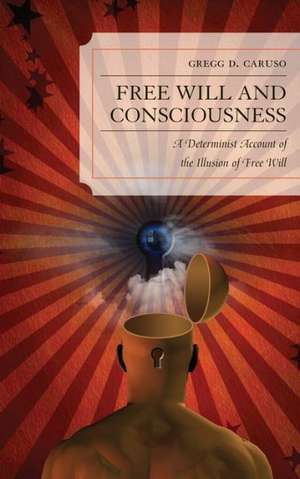Free Will and Consciousness
Autor Gregg D. Carusoen Limba Engleză Paperback – mai 2013
| Toate formatele și edițiile | Preț | Express |
|---|---|---|
| Paperback (1) | 519.75 lei 6-8 săpt. | |
| Rowman & Littlefield – mai 2013 | 519.75 lei 6-8 săpt. | |
| Hardback (1) | 787.67 lei 6-8 săpt. | |
| Rowman & Littlefield – 23 feb 2012 | 787.67 lei 6-8 săpt. |
Preț: 519.75 lei
Nou
Puncte Express: 780
Preț estimativ în valută:
99.45€ • 104.39$ • 82.55£
99.45€ • 104.39$ • 82.55£
Carte tipărită la comandă
Livrare economică 11-25 aprilie
Preluare comenzi: 021 569.72.76
Specificații
ISBN-13: 9780739184400
ISBN-10: 0739184407
Pagini: 301
Dimensiuni: 150 x 226 x 23 mm
Greutate: 0.48 kg
Editura: Rowman & Littlefield
ISBN-10: 0739184407
Pagini: 301
Dimensiuni: 150 x 226 x 23 mm
Greutate: 0.48 kg
Editura: Rowman & Littlefield
Notă biografică
Descriere
This book argues two main things: The first is that there is no such thing as free will--at least not in the sense most ordinary folk take to be central or fundamental; the second is that the strong and pervasive belief in free will can be accounted for through a careful analysis of our phenomenology and a proper theoretical understanding of consciousness.
